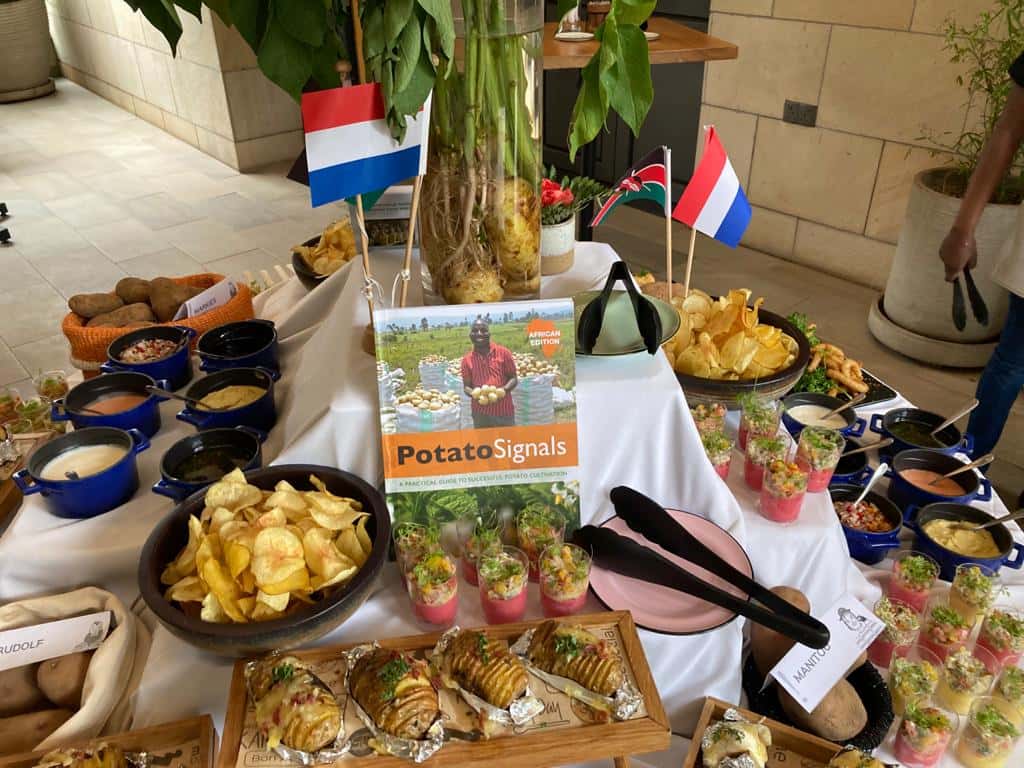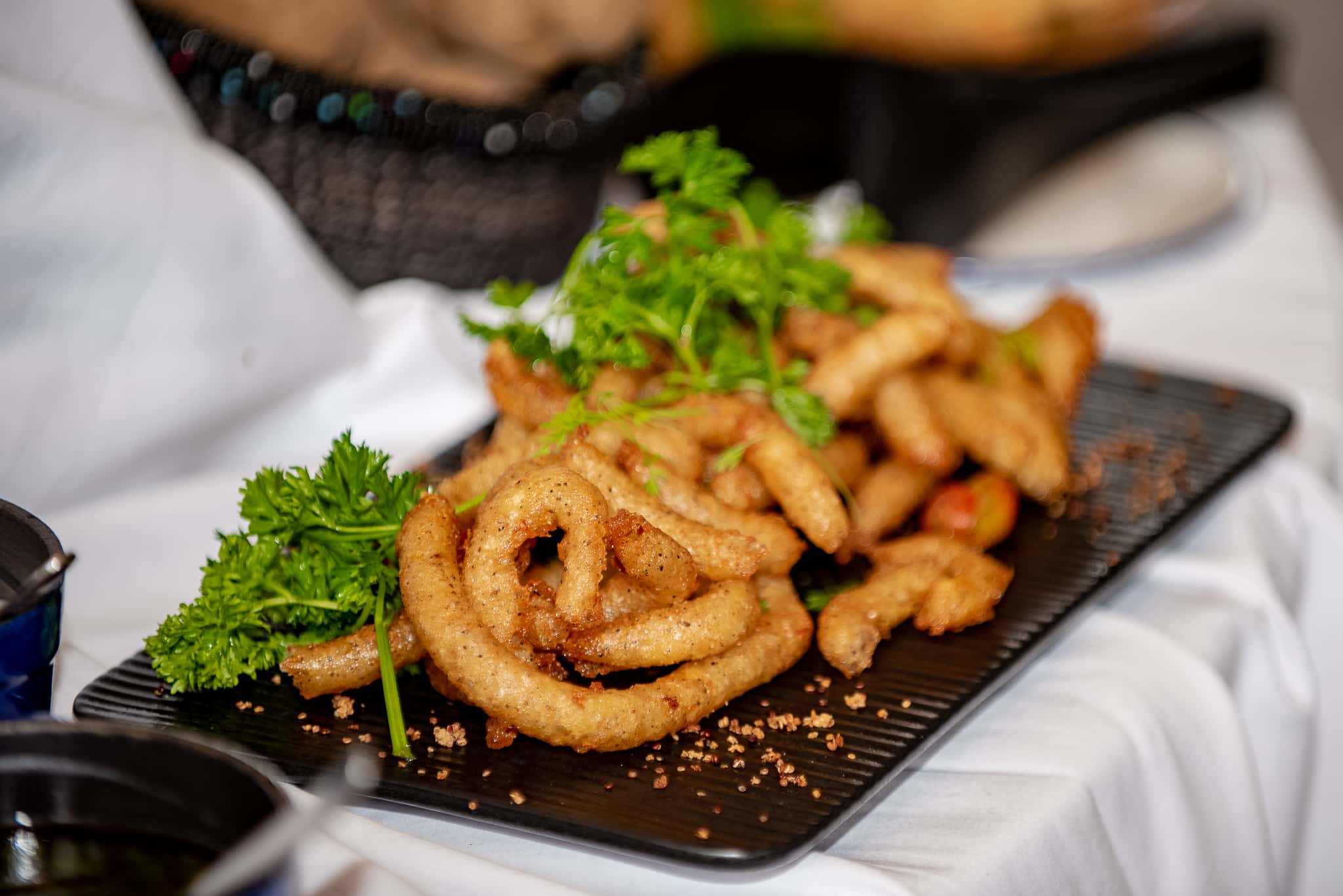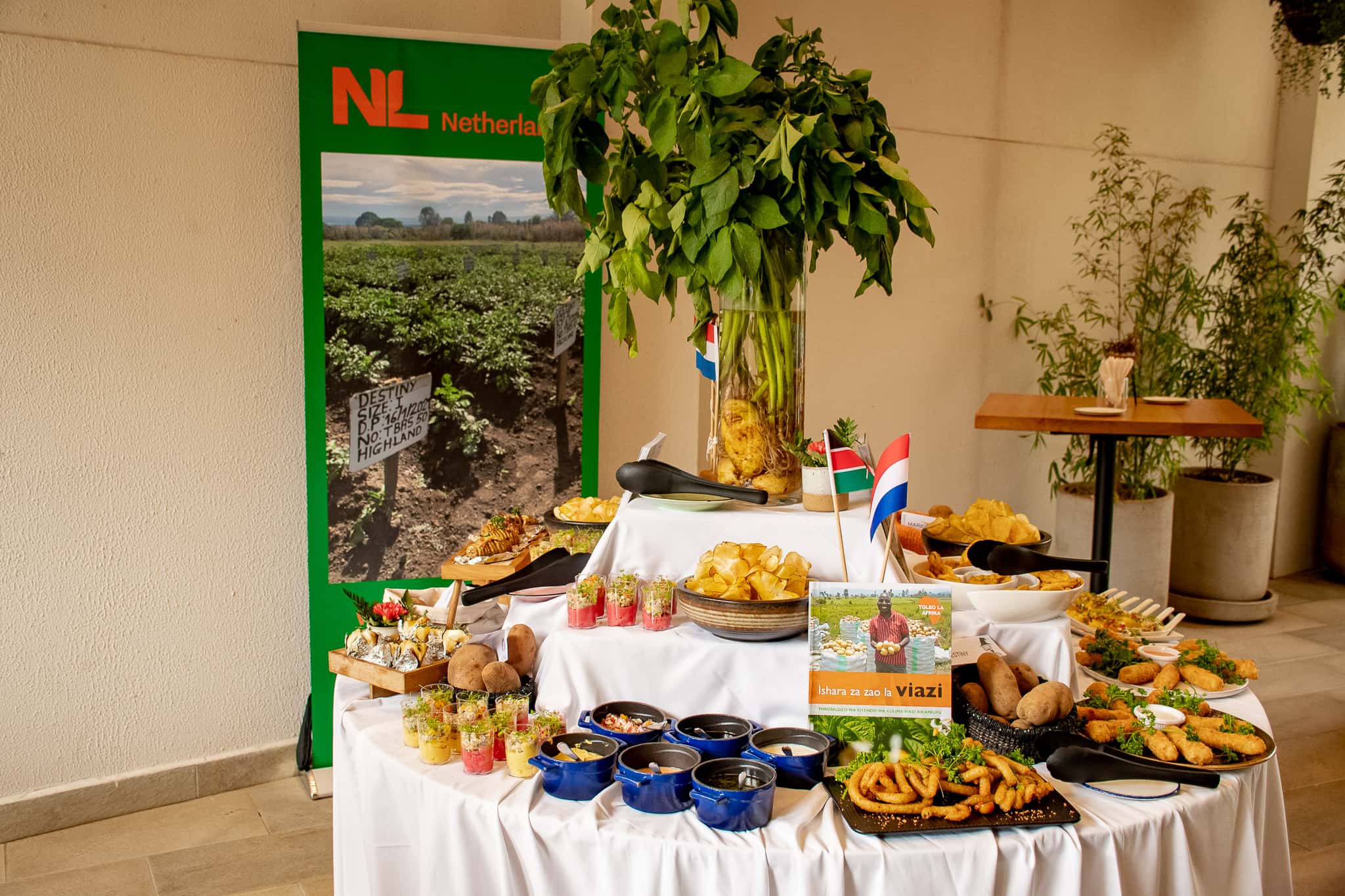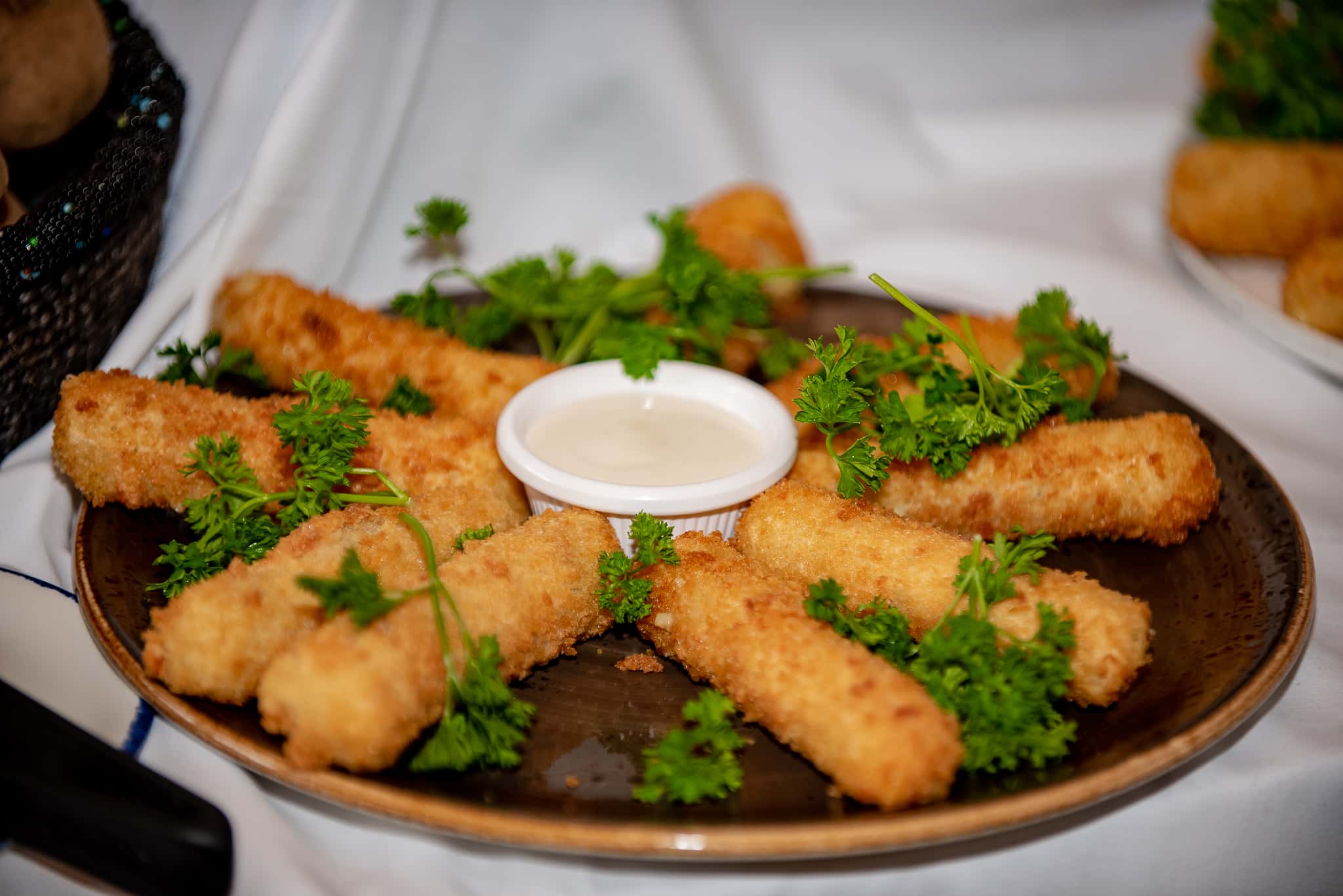In Kenya, the potato sector plays a major role in food security and contributing to poverty alleviation through income generation and employment opportunities. Despite this fact the sector is largely driven by smallholder farmers who opt to plant seeds from informal sources. This include selection from the previous crop, local markets or from neighbours, which end up yielding less potatoes and a source for transfer of pest and diseases. Despite these challenges, stakeholders in the sector have been working towards strengthening policies geared towards improvement of processes from seed to plate.
A collaborative journey between Kenya and The Kingdom of The Netherlands, to strengthen Kenya’s potato Sector
Over ten years ago, the Kingdom of the Netherlands joined hands with the Kenyan government and the private sector towards optimizing potato seed production. This was aimed at improving the sector’s production capacities and seed varieties on the back of a growing demand of the potatoes over maize, which has been a key staple in Kenya.
The Netherlands is the world's largest exporter of seed potatoes with approximately 55% of exported certified seed potatoes which is over 700,000 tonnes per year. In Kenya, there are palpable achievements over the years of collaboration. Thirty four out of sixty-four potato varieties currently grown in Kenya come from the Netherlands, courtesy of the cooperation between these two governments. More potato varieties are now available for table consumption as well as for chipping and crisping, which has contributed to the growth potato sector. This has led to increased potato production; multiplication of seed potatoes has increased and several sustainable solutions among them storage introduced and adapted by farmers through cooperative models.
Netherlands Deputy Ambassador Joris Van Bommel with Agriculture PS Hamadi Boga
Production of seed in Kenya is the driver of development in the sector. It currently stands at 5% of the estimated demand of 100,000 tonnes. "The close cooperation between the two governments and the private sector intends to increase this figure," asserts Joris van Bommel, Deputy Ambassador of the Netherlands, during the launch of the potato signals practical guide to potato cultivation on 19th August 28, 2021, which marks the international Potato day.
Some of the achievements through this cooperation include; capacity building activities with the Kenyan Ministry of Agriculture and county staff on seed potato production, mechanization, storage technologies, capacity development of Kenya Plant Health Inspectorate Services (KEPHIS) to strengthen seed import inspection and field inspection which included upgrading of the laboratory facilities at KEPHIS, production of Kenya potato variety catalogues and organization of potato conferences together with National Potato Council of Kenya (NPCK). Potato diseases surveillance with several stakeholders including Commonwealth Agricultural Bureaux International (CABI) in six growing counties in Kenya. The results of the surveillance will guide strategies for disease and pest risk management. The embassy also organized trade fairs and potato field days to create awareness among the farmers on the latest potato varieties and technologies.
Through our collaborative journey with Kenya, The Netherlands has invested over 20 million Euros through the public and private sectors, indicating the commitment the Dutch Government has, in working with Kenya towards strengthening the potato sector and trade relations in general," said Joris Van Bommel, deputy ambassador of the Embassy of The Kingdom of The Netherlands
The launch
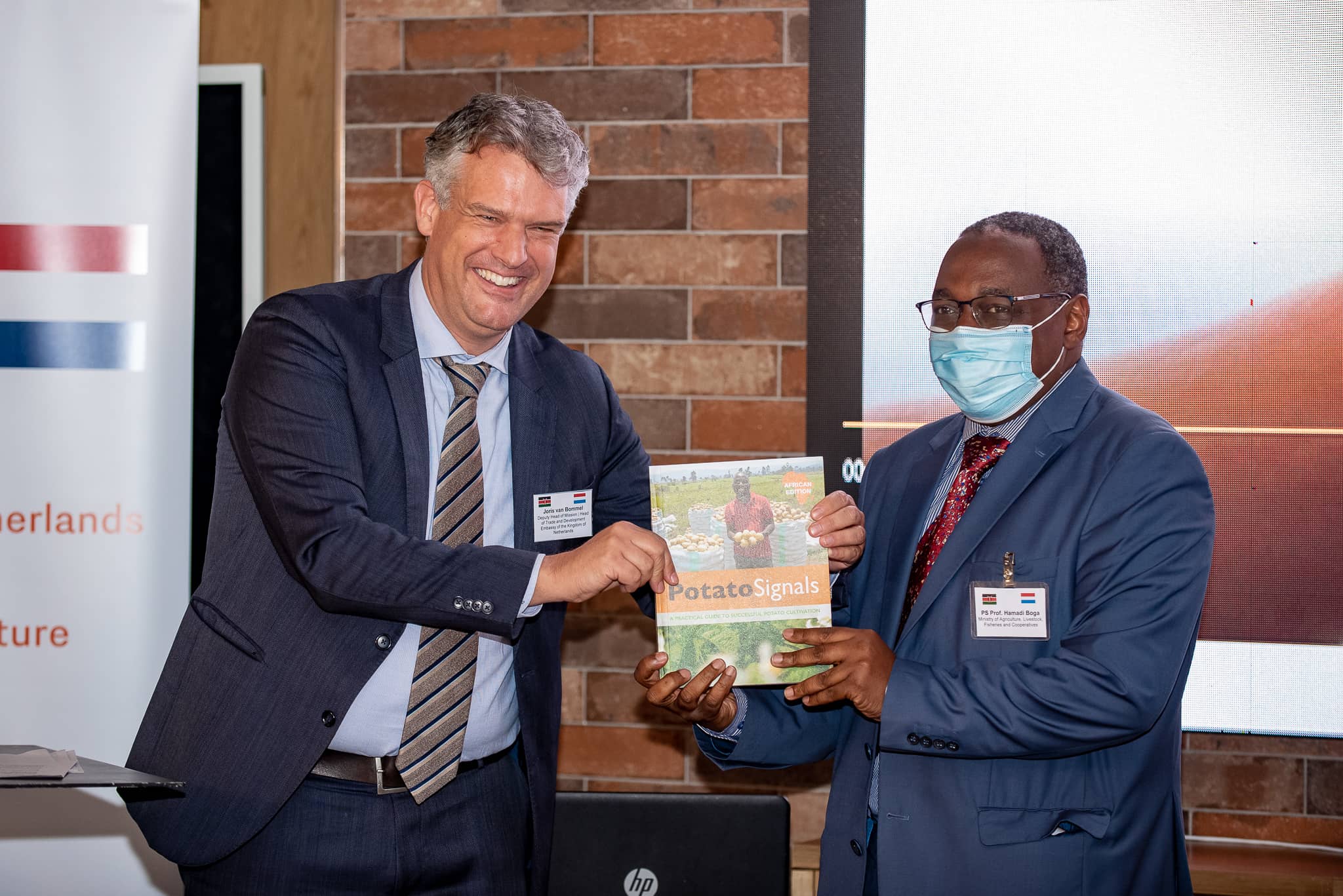
Netherlands Deputy Ambassador Joris Van Bommel with Agriculture PS Hamadi Boga 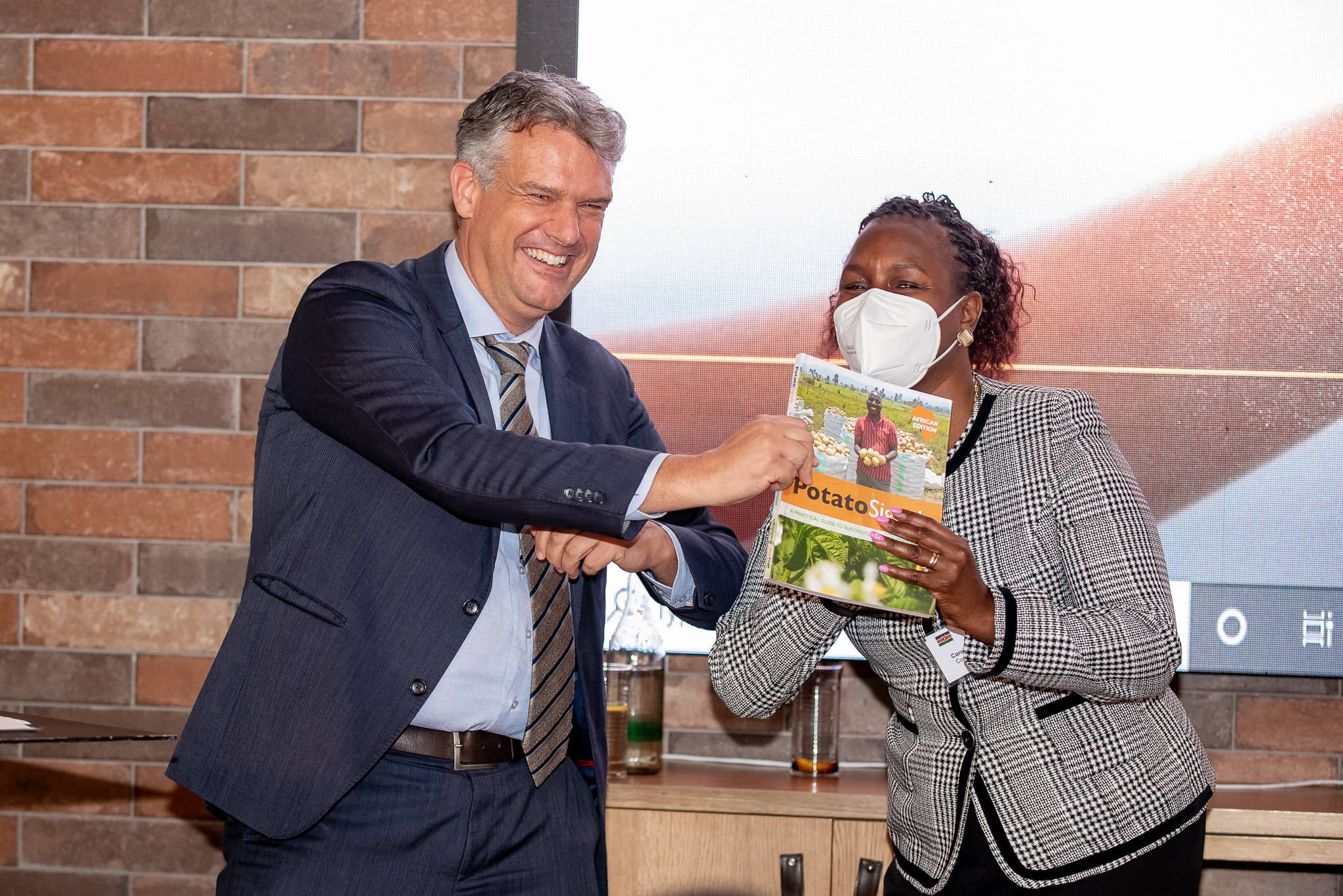
Netherlands Deputy Ambassador Joris Van Bommel with Meru County Agriculture Executive Carol Mutiga
The Potato signals launch was, a special event that brought together stakeholders working on the development of the potato sector in Kenya. The attendees ranged from farmers, input suppliers, seed multipliers, development organizations, processors, press and policy makers.
Beeld: Roodbont Publishers
The event was graced by Prof Hamadi Boga, Principal Secretary for Crop Development and Agriculture Research. In his key note address, he highlighted that the long-standing partnership between Kenya and The Netherlands, had allowed for cross-learning experiences between Kenyan and Dutch experts as well as other key stakeholders. “The issue of potato is key for Kenya, as we work towards achieving food nutrition and security. Potato production has been growing steadily and today, potato is the second most important staple crop after maize in Kenya. The sector also offers employment opportunities and this explains why the Kenyan government also prioritized potato sector as one of the crops in the Big 4 Agenda," he added. According to estimated figures, Kenya's Big 4 Agenda targets to produce 2.5million tonnes per year. This will require 500,000 tonnes of certified seed assuming that majority of the producers are small scale producing with average yield of 12.5 tonnes per hectare.
"Information and knowledge gap amongst smallholder farmers remains their major hindrance when they are adopting farming methods. So we appreciate efforts to support potato farmers to achieve higher productivity on their small plots, because most of them are planting on small plots which have no room for rotation,"said Prof Hamadi Boga, Principal Secretary for Crop Development and Agriculture Research.
The PS revealed that the consumption of maize has been at 100kg per capita per year-the highest in the region, but that has now dropped to about 67kg per capita, "And this is simply because people have moved to potatoes. There is increase in consumption of potatoes and so far potato is gaining momentum as far as diet in Kenya is concerned. We are happy with the support of different varieties of potato which has come about as a result of the collaboration with the Netherlands," said Prof Boga. He further added "Certified seeds is important, the soils have become infested with various pests that have been identified and we appreciate the work done by Netherlands government through surveillance of pests that enables stakeholders come together to find appropriate solutions."
The launch of the Potato Signals couldn’t have happened on a better day than on the international potato day. Dep. Amb Joris van Bommel, refers to the Potato Signal guidebook that was made with Kenyan experts as a practical guide to successful potato cultivation. "Potato Signals is not a classical theoretical textbook, but an exciting practical guide. It starts by looking at the signals sent out to you by your potato crop. The central words of this guide are: 'Look, Think and Act.' So what do you see when looking at your potato crop? What does it mean? And, what do you do?" He explained.
Beeld: Roodbont Publishers
The guidebook covers all the important stages in potato growing starting with seed preparation, production aspects, harvesting through to storing and delivering the potato to the consumer. For instance in diagrams, the potato production cycle shows each step that is required full attention beginning-seed potato sourcing, fertilization planting, ridging/hilling, second hilling, crop management, weed control, top-dressing, pest control, haulm destruction (pulling, cutting, spraying), harvesting and grading, storage and finally sales of table potatoes delivery for further processing.
The guidebook is available in both English and Swahili to enable a wider reach among stakeholders in the region. During the formulation of the book, both Kenya and Dutch potato experts worked together on the content. "We are delighted that today we can launch the final result of all that hard work," he praised.
Interested in the Potato Signals? You can order your own Potato Signals book here.
For questions for the Agricultural Counsellor feel free to contact us via nai-lnv@minbuza.nl. For the latest updates follow us on twitter @NLAgriKenya or register for our newsletter by sending an email.
